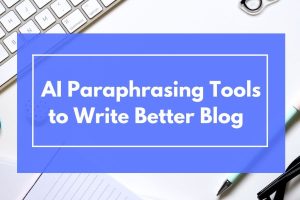
Start Freelancing Today: A Step-by-Step Guide for Students and Beginners
Are you looking to start freelancing but don’t know where to start? Here is a comprehensive guide on how to start freelancing as a student or beginner. This guide will walk you through the process of becoming a successful freelancer in 30 days or less.
Table of Contents
What is Freelancing?
Freelancing is the process of providing services to clients on a freelance basis. This means that you are not employed by a company or organization, but rather are working as an independent contractor. You are able to set your own hours, work from home or anywhere you choose, and work on projects that you find interesting and rewarding.
Freelancing can be done in a variety of fields, from writing and editing to web design and programming. You can also specialize in a certain type of freelance work, such as copywriting, content creation, or social media management.
Benefits of Freelancing
The obvious benefit of freelancing is that it provides you with the freedom and flexibility to work when and where you want. You can also set your own rates and negotiate contracts that are beneficial to you.
Freelancing also allows you to gain experience and build your portfolio. You can showcase your skills and expertise to potential clients, and you may even be able to find long-term clients that provide consistent work.
Additionally, freelancing can provide a great source of income. You can make more money than you would with a traditional job, and you don’t have to worry about the hassle of commuting or dealing with an employer.
Common Freelance Skills
Before you start freelancing, you’ll need to decide what type of freelancing you want to do. There are many different types of freelance skills, and you’ll want to make sure you have the necessary skills for the type of work you want to do.
Some of the most common freelance skills are writing, editing, design, coding, web development, SEO, and digital marketing. You may also want to consider learning a specific type of coding language, such as HTML, CSS, or JavaScript, or specific design software, such as Adobe Photoshop or Illustrator.
How to Get Started Freelancing
Once you have decided on the type of freelancing you want to do, the next step is to create a portfolio. This is a great way to showcase your skills and experience, and it’s also a great way to attract potential clients.
You’ll also need to create an online presence. This can include a website, social media accounts, and other online profiles. You’ll want to make sure that your online presence is professional and up-to-date.
You’ll also need to decide on your rates and your payment terms. You’ll want to be clear about what services you offer and how much you charge for them. You should also make sure that you are able to negotiate payment terms with your clients.
Writing a Freelance Proposal
Once you have created your portfolio and your online presence, the next step is to write a freelance proposal. This should include information about your skills and experience, as well as any services you offer and your rates. You’ll also want to make sure that you include information about how you plan to work with the client, such as timelines and deliverables.
Setting Your Rates and Negotiating
Once you have written your proposal, the next step is to set your rates and negotiate payment terms with your clients. You’ll want to make sure that you are charging a rate that is fair and competitive. You should also make sure that you are able to negotiate payment terms that are beneficial to both you and the client.
Finding Freelance Job Opportunities
Once you have your portfolio and proposal ready, the next step is to find freelance job opportunities. There are many different ways to find freelance jobs, such as job boards, freelance websites, and networking. You can also reach out to potential clients directly and offer your services.
How to Start Freelancing with No Experience
If you are just starting out as a freelancer and don’t have any experience, don’t worry. There are still plenty of ways to start freelancing with no experience.

One way is to offer your services for free or at a discounted rate. This is a great way to gain experience and build your portfolio. You can also reach out to friends, family, and colleagues and offer to do some freelance work for them.
You can also take on smaller projects or do pro bono work to gain experience. This is a great way to build your portfolio and gain experience in a specific field.
Freelancing with AI
Artificial intelligence (AI) is rapidly changing the world of work, and freelancing is no exception. AI is being used to automate tasks, personalize experiences, and create new opportunities for freelancers.
Here are some ways that AI is being used in freelancing:
- Automating tasks: AI can be used to automate tasks such as data entry, customer service, and marketing. This frees up freelancers to focus on more creative and strategic work.
- Personalizing experiences: AI can be used to personalize experiences for clients, such as recommending products or services, or providing tailored feedback. This can help freelancers build stronger relationships with their clients and deliver better results.
- Creating new opportunities: AI is being used to create new opportunities for freelancers, such as in the areas of machine learning, data science, and artificial intelligence. These are high-paying fields with a lot of demand, and freelancers with AI skills can command a premium.
If you are interested in freelancing with AI, there are a few things you can do to get started:
- Learn about AI: The first step is to learn about AI. There are many resources available online and in libraries.
- Develop AI skills: Once you have a basic understanding of AI, you can start developing AI skills. There are many online courses and tutorials available.
- Network with other AI freelancers: Networking with other AI freelancers is a great way to learn about new opportunities and get advice. There are many online forums and communities for AI freelancers.
- Be patient and persistent: It takes time to build a successful freelance business. Be patient and persistent, and you will eventually succeed.
More specifically, there are a few categories on Fiverr that are totally AI-driven, for example, the AI voice generator. AI voiceover is currently a popular job on Fiverr. There are so many people doing this and making thousands of dollars. This is one of the examples that I have given to you, However, there are so many AI-related jobs available there. In the below sections, you will learn about the platforms for your freelancing or remote jobs.
Freelancing Websites and Platforms
Once you have some experience, you can start looking for freelance jobs on freelancing websites and platforms. There are many different websites and platforms, such as Upwork, Fiverr, and Freelancer.com, that allow you to find freelance job opportunities.
These websites and platforms also allow you to create a profile and showcase your skills and experience. You can also connect with potential clients, submit proposals, and negotiate payment terms.
How to Start Freelancing as a Student
If you’re a student and want to start freelancing, there are some things you should keep in mind. First, you’ll want to make sure that you are able to manage your time effectively. You’ll need to make sure that you are able to balance your schoolwork with your freelancing work.
You’ll also want to make sure that you are able to set your own rates and negotiate payment terms. You may also want to consider taking on smaller projects to gain experience and build your portfolio.
How to Promote Your Freelancing Services
Once you have some experience and have created a portfolio, the next step is to promote your freelancing services. You can use social media, your website, and other online platforms to promote your services. You can also reach out to potential clients directly and offer your services.
You can also join freelancing communities and forums to connect with potential clients. This is a great way to network and build relationships with potential clients.
When to Start Freelancing
The best time to start freelancing is when you have the time and resources to commit to freelance work. You’ll want to make sure that you are able to manage your time effectively and that you are able to set your own rates and negotiate payment terms.
You’ll also want to make sure that you have some experience and have built a portfolio. This will help you attract potential clients and show them that you are a reliable and skilled freelancer.
How to Become a Freelancer in 30 Days
If you are looking to become a freelancer in 30 days or less, it is important that you have a plan. You’ll want to make sure that you are able to manage your time effectively and that you are able to set your own rates and negotiate payment terms.
You’ll also want to create an online presence and make sure that your portfolio is up-to-date. You’ll also want to find freelance job opportunities and reach out to potential clients.
Freelancing vs Outsourcing
When deciding whether to outsource or freelance, it is important to consider your goals and the type of work you want to do. If you are looking for long-term projects or ongoing work, outsourcing may be a better option. However, if you are looking for short-term projects or one-off tasks, freelancing may be a better option.
| Feature | Freelancing | Outsourcing |
|---|---|---|
| Definition | An individual providing a service to clients on a project-by-project basis | A company or organization provides a service to clients by contracting with an external provider |
| Control | Freelancer has complete control over their work | The outsourcer has control over their work but may have to follow the client’s specific instructions |
| Flexibility | Freelancer has a high degree of flexibility in terms of working hours and location | Outsourcers may have less flexibility as they may have to work within the client’s specific schedule and location |
| Cost | Generally, freelancers charge a higher rate per hour compared to outsourcing | Outsourcing may have a lower hourly rate, but the overall cost may be higher due to management and overhead expenses |
| Expertise | Freelancers tend to have specialized skills and expertise | Outsourcers may have a wider range of skills and expertise |
| Legal Responsibilities | Freelancers are responsible for their own taxes and legal obligations | Outsourcers are responsible for their own taxes and legal obligations, but may also be responsible for the taxes and legal obligations of the contracted employees |
It is also important to consider the cost. Freelancing is often cheaper than outsourcing, as you don’t have to pay for overhead costs or employees. You also have more control over your work and can set your own rates and negotiate payment terms.
Conclusion
Freelancing is a great way to make money and gain experience. This guide has provided you with a step-by-step guide on how to start freelancing as a student or beginner. You should now have a better understanding of what freelancing is, the benefits of freelancing, common freelance skills, how to get started freelancing, and how to become a freelancer in 30 days or less.
You should also have a clear understanding of how to find freelance job opportunities when to start freelancing, and how to promote your services. Finally, you should also have an understanding of the differences between freelancing and outsourcing.
FAQ: Frequently Asked Questions
What is the best way to find freelance job opportunities?
The best way to find freelance job opportunities is to use job boards, freelance websites, and networking. You can also reach out to potential clients directly and offer your services.
How can I make sure that I’m charging a fair rate?
You should make sure that you are charging a rate that is fair and competitive. You should also make sure that you are able to negotiate payment terms that are beneficial to both you and the client.
How can I make sure that I’m able to manage my time effectively?
You’ll want to make sure that you are able to set aside time for freelancing work and that you are able to prioritize your tasks. You can also use time-tracking tools to make sure that you are staying on track and meeting deadlines. Start freelancing today and take control of your career! With the right skills, dedication, and the steps outlined in this guide, you can become a successful freelancer in 30 days or less.
What are the benefits of freelancing for students and beginners?
Freelancing can provide students and beginners with the opportunity to gain valuable work experience, build a portfolio, and earn extra income. It can also give them the flexibility to work on projects that align with their interests and skills, and to learn new skills and technologies.
What are the steps to take to start freelancing as a student or beginner?
The steps to start freelancing as a student or beginner include identifying your skills and interests, creating a portfolio, building a professional online presence, networking and finding clients, and setting your rates and terms.
How to find clients as a freelancer?
There are several ways to find clients as a freelancer, such as networking, reaching out to friends and family, joining online freelancing platforms, and participating in online communities.
What are the common mistakes made by beginner freelancers?
Some common mistakes made by beginner freelancers include undervaluing their services, not setting clear boundaries with clients, not having a clear schedule and work-life balance, not having a professional online presence and portfolio, not having a clear understanding of their market, and not having a proper contract and agreement with clients. Additionally, some beginners may also struggle with time management and prioritization, or not have the proper tools and resources to perform the job.
What are the skills required to start freelancing?
Knowing your area of expertise, the skills you have, and the services you can offer.
-Good communication skills are needed to effectively interact with clients
-Time management and organization skills to manage your workload and deadlines
-Self-motivation and discipline to work independently
-Basic business and financial skills to manage your finances and price your services.
-Technical skills and knowledge for the services you’re providing.
-Marketing skills to promote yourself and your services.
-Adaptability and flexibility to work with different clients and projects.
-Strong portfolio to showcase your work
-Networking skills to find clients and expand your business.
Can I start freelancing with no skills or experience?
It is possible to start freelancing with little or no skills or experience, but it may be challenging to find clients and generate income. Starting freelancing without any skills or experience may require learning new skills or gaining experience through internships or volunteering. It’s also important to be open to learning and willing to invest in learning new skills to improve your service offerings. It’s also important to remember that starting anything new takes time and effort, and freelancing is no exception, so be prepared to put in the work to build your skills and experience.




2 Comments